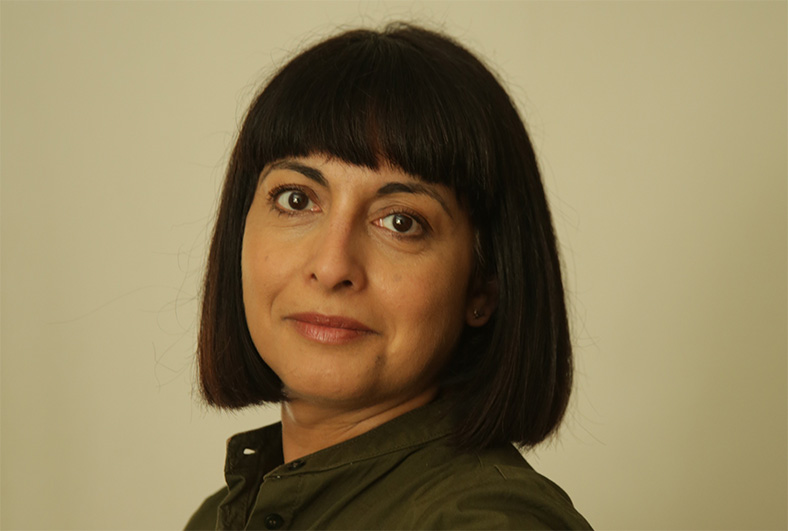Reporting the cost-of-living crisis: Freelance Journalist Saba Salman

The new Prime Minister Liz Truss has many issues to tackle as she takes power but the most pressing concern for much of the general public is what the Government will do to help with the cost-of-living crisis.
Last week, we caught up with Graham Martin, editor at Third Force News, to find out how they have been covering the crisis. How do freelancers in this sector cover this topical issue?
We spoke to award-wining journalist and author Saba Salman who is a regular contributor to the Guardian, the Independent and the Byline Times, and now editor of quarterly magazine Community Living. Her non-fiction book Made Possible: stories of success by people with learning disabilities is inspired by her sister Raana and published by Unbound. Saba also chairs the charity Sibs, which supports the siblings of disabled people.
How much of your reporting is taken up with cost-of-living related issues?
The cost-of-living crisis runs through all my reporting right now. If I’m not writing or editing stories about it, it’s the backdrop to what I’m covering.
For disabled people and their families, the latest financial pressures comes on top of being hardest hit during Covid, and before that, austerity and welfare reform. I’ve spent the last year reporting on how things aren’t ‘back to normal’ after Covid for people with disabilities. If you’re disabled, you already pay extra living costs – Scope’s research puts this at £583 extra a month. For people and families to face soaring living costs on top of what they already have to deal with is adding insult onto injury, to say the least.
How do you like to work with charities? How should a comms team get in touch to work with you, and with what kind of information?
I don’t usually pick up stories from press releases. I’m more likely to be working on a story of my own, and then approach a charity for a wider perspective so I can put the issue in context. The contacts I prefer working with are the ones who let me know what’s coming up, rather than just add me to a general media list for press releases. Maybe a charity is planning a campaign, report or research study, and it might fit with what I’m working on. And if I can’t report it right away, it might help shape a future piece. Advance notice is always good because I don’t usually work on fast turnaround news pieces.
Are there particular topics related to the cost-of-living crisis that you’d like to cover more in your work and would appreciate contributions on?
I’m interested in reporting the experiences and talking to people we rarely hear from, like someone who has a profound disability, or their family, or health and care support staff. I’m also interested in covering the stories of people for whom the cost-of-living might be harsher because they face multiple barriers or disadvantage, for example, due to race and disability.
What advice would you give to charities that want to get the attention of the media, politicians and the public?
This isn’t advice, it’s fact: people’s stories matter and personal insights have more value than a spokespersons’s words, no matter how well-meant the words or important the cause. The charities I tend to work with the most are the ones giving a real platform to and taking their lead from people with direct experience. And that’s not the same as attaching a case study to an email or a ‘beneficiary’ soundbite at the end of a press release.
Are there any particular pieces you’ve written recently that you’re particularly proud of and would like to highlight?
I just wrote a story for Byline Times about what the overhaul of human rights legislation means for disabled people, coming as it does after Covid and during the cost-of-living crisis. The repeal of the Human Rights Act has hit the headlines, but there’s been very little focus on how important the law is for disabled people and their families. And although it’s less recent, my podcast with Tortoise Media, A Place for Elliott, feels timely again as we head into winter. Disabled families like Elliott’s will be bracing themselves for the new COVID-19 variants on the horizon just as the cost-of-living crisis starts to bite.
Which areas do you think need more attention from the public and politicians?
We need a focus on areas that always get overlooked, not least during the Tory leadership race; social care and disability issues, especially learning disability. Social care got on the radar during the pandemic – eventually – but it’s now back to where it’s always been, as the poor relation of healthcare and ignored by successive Governments. As for learning disability, it’s over 20 years since the Government produced its national strategy for learning disability support. If more politicians realised that people with a learning disability have the right to vote and can contribute to their communities, they’d realise they need to appeal to this part of the electorate.
The Journalist Enquiry Service offers discounts to charity subscribers – to receive requests for information, expert comment and surveys from UK journalists, find out more here.




